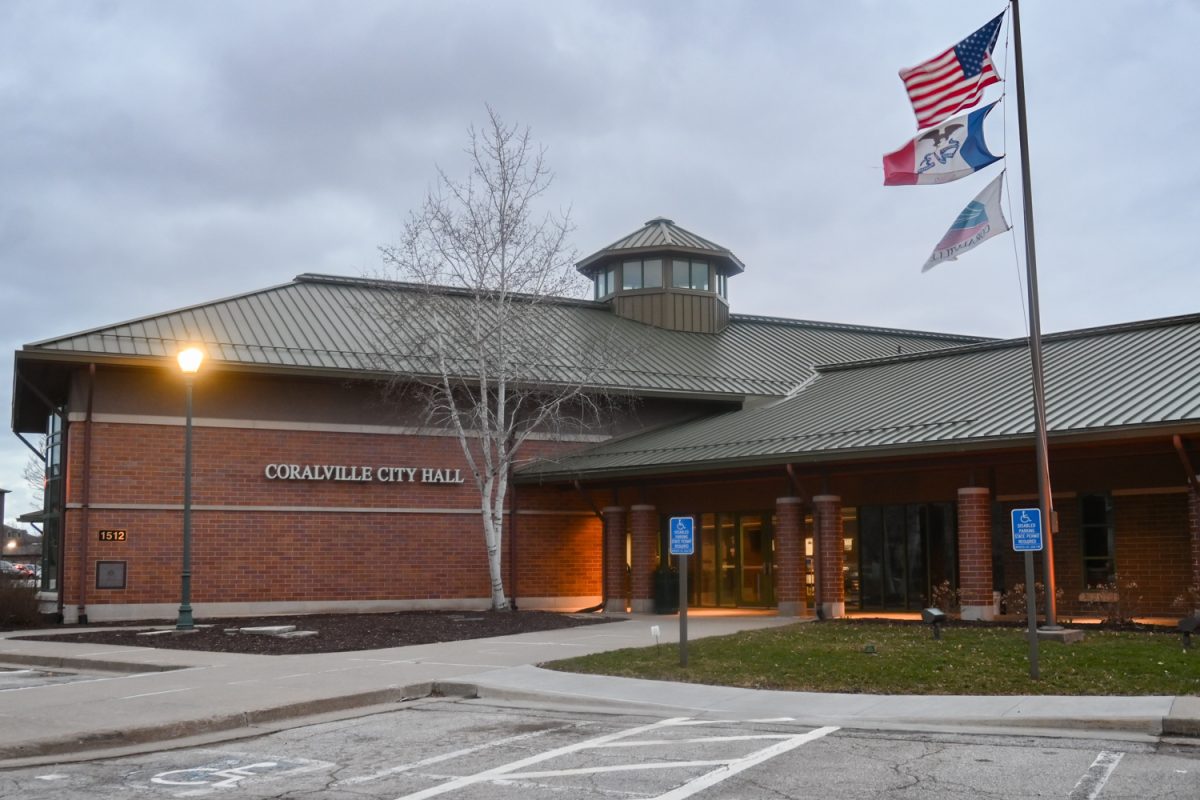The City of Coralville has made it unlawful for people and materials to block public sidewalks due to recent issues with an individual occupying a city sidewalk and refusing to move.
Before the Coralville City Council unanimously approved the change on Oct. 8, it was only unlawful for groups of people to block sidewalks. This meant that responding officers had no grounds to force any individuals or materials to be moved.
Kyle Nicholson, Coralville’s police chief, said the individual — who he did not name — has refused any services the police department, the mobile crisis outreach team, or the city’s mental health liaison have offered.
“This individual is sleeping on a sidewalk and has all of his belongings in a trash bag on the sidewalk, blocking the sidewalk, and is causing a nuisance to the area businesses,” Nicholson said. “[The individual] is trespassed from those properties, routinely goes back onto those properties, and is causing issues for them and their patrons.”
Nicholson said the police department will notify the individual of the rule change and again try to offer him services, such as local homeless shelters.
There have been other instances of sidewalks being blocked in the city in other situations. Meghann Foster, Coralville’s mayor, said there have been instances of people’s vehicles blocking public sidewalks for long periods of time as well as construction workers’ materials obstructing walkways.
Just because the rules have changed does not mean they will always be enforced, Foster said. As long as an individual moves themselves or their belongings off a sidewalk when asked to move, they will not be in trouble, she said.
The City of Coralville is not trying to criminalize situations that may take place on sidewalks, such as unhoused individuals or peaceful protests, Foster said. However, it can be hard to find a balance between the needs of all the city’s residents, she said.
RELATED: Coralville begins plan to update 50-year-old rec center
“I don’t want to criminalize peaceful protest. If somebody is unhoused and they’re not hurting anybody or doing anything wrong, I want them to get help,” Foster said. “But at the same time, how do you balance that with people [needing] to move up and down the street and move up and down sidewalks?”
Foster and Nicholson both said the Coralville Police Department is good at treating each instance on a case-by-case basis and involving social workers or other necessary resources to get people help instead of immediately resorting to criminal action.
Other nearby cities have not had many issues with groups, individuals, or materials blocking sidewalks. In an email to The Daily Iowan, Lee Hermiston, the city’s public safety information officer, wrote that this situation is not a major issue for the department.
Iowa City does have rules in its city code about obstructing sidewalks, though. The city’s code states that no person can obstruct a bridge, trail, sidewalk, or other crossing. It is also unlawful for a person to block the entrance to public buildings.
Iowa City’s code says an individual who does any of these things can be charged with a simple misdemeanor and a $50 fine.
Coralville’s city code uses similar language to Iowa City’s but does not give possible punishments for breaking the sidewalk obstruction rule.



